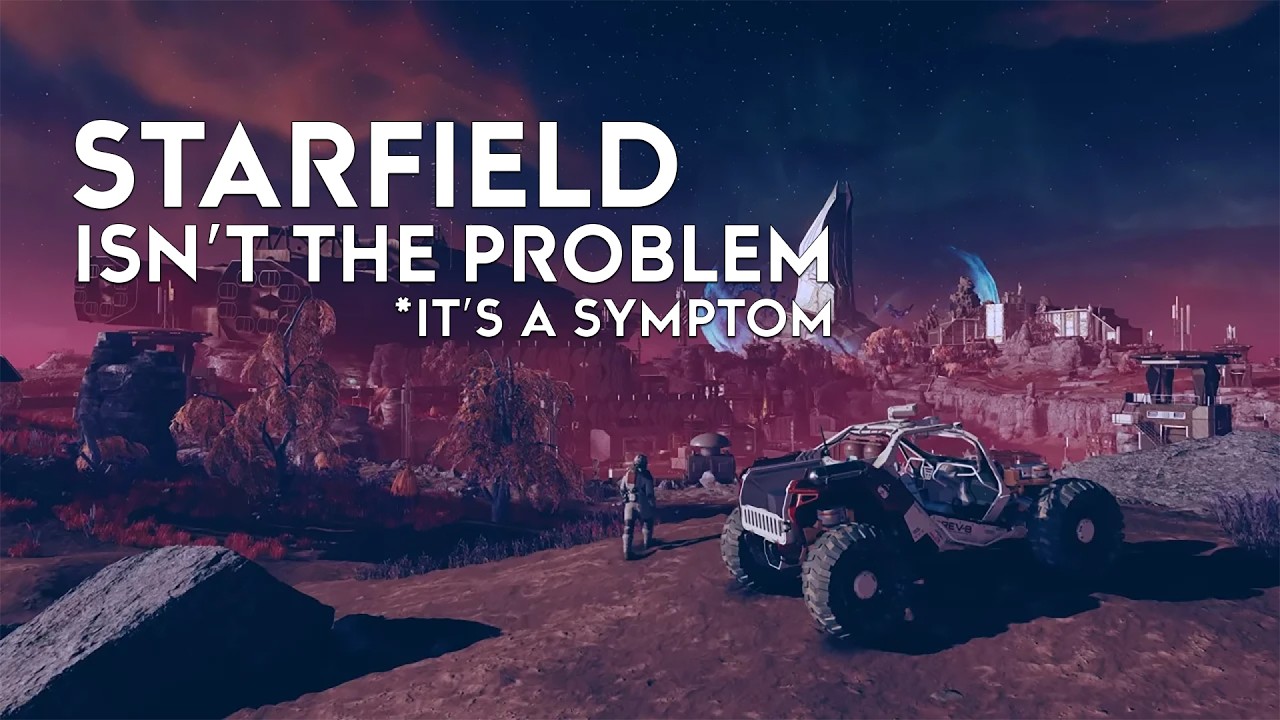The video critiques Bethesda’s “Shattered Space” DLC for Starfield, arguing that its negative reception reflects deeper issues within the gaming industry, including a disconnect between developers and player expectations, and a lack of innovation in game design. It calls for developers to engage genuinely with their communities and embrace creative risks to restore trust and deliver meaningful gaming experiences.
In the video, the speaker addresses the broader issues plaguing the gaming industry, using the recent release of Bethesda’s DLC “Shattered Space” for Starfield as a case study. They argue that the negative reception of this DLC is not merely a reflection of poor game design but rather indicative of deep-rooted problems within game development studios and their disconnect with player expectations. The speaker highlights a growing frustration among players who feel that their feedback is often dismissed, leading to a sense of alienation from the developers.
The video critiques the lack of innovation and depth in “Shattered Space,” which failed to address the criticisms that surrounded the initial release of Starfield. Despite some new content, the DLC was perceived as uninspired and repetitive, failing to engage players meaningfully. The expectation was that Bethesda would learn from past mistakes, akin to how CD Projekt Red revitalized Cyberpunk 2077 with its “Phantom Liberty” expansion, but instead, it fell short, leading to disappointment among the community.
A significant part of the discussion revolves around the corporatization of game development, where marketing and broad appeal often take precedence over authentic storytelling and creativity. The speaker argues that this trend has resulted in formulaic content that lacks originality, as developers prioritize mass marketability over innovative experiences. This shift is contrasted with the success of studios like FromSoftware, which have managed to create high-quality games by respecting player agency and taking creative risks.
The speaker also points out the problematic rhetoric coming from developers who blame players for having unrealistic expectations. They argue that these expectations are a direct result of the high-quality experiences that studios once delivered, and dismissing player feedback only exacerbates the disconnect. The video calls for a self-reflective approach from developers, suggesting that the issues in game development are often internal rather than stemming from player ignorance.
Ultimately, the speaker emphasizes that for Bethesda to regain player trust and enthusiasm, they must genuinely engage with their community, embrace creative risks, and listen to feedback. They note that the success of recent titles demonstrates a strong demand for meaningful storytelling and player respect. The video concludes with a call for humility and introspection from developers to return to the core values that made their games beloved in the first place.
